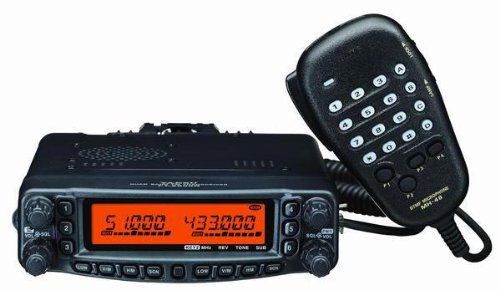Amateur radio, popularly referred to as ham radio, is a wireless radio service operated by people who, to the outside world, are obsessed with tinkering with all types of wireless communication equipment.
To ham radio operators, ‘obsessed’ is the wrong choice of word. They’d rather be referred to as passionate.
Unlike professional radio operators who consider this as a job, ham radio operators see this as a hobby they are passionate about. Apart from the license to legally operate a radio, ham radio enthusiasts don’t need any special qualifications or formal education to be qualified.
That is why the ham radio universe is full of people from all walks of life with the majority having regular day jobs.
The primary equipment is a transceiver which can be just a simple handheld device or a more specialized desktop or mobile gadget. The type of equipment used usually depends on one’s budget or how committed an individual is.
But of all the names this activity could be called, why ham radio? How did the word ‘ham’ become a byword for this activity and what is the special quality of hams that encouraged amateur wireless operators to embrace the name without reservations?
How Amateur Radio Operators Became Ham Radio operators
There is a lack of agreement among historians on how ham radio became part of the world’s lexicon.
One popular origin story refers to the call sign of the first amateur wireless station operated by three people of the Harvard Radio Club in 1908. They called the station HAM, derived from the first letters of their names.
This story gets more complicated with the involvement of the US Congress, an impassioned speech by one member of HAM station to the lawmakers, and a bill to regulate the industry. There is no documentary evidence that these events occurred no matter what some people might think.
A more plausible origin of the word is linked to the disgust professional radio operators felt towards amateur radio operators around 1901. The pros claimed the amateurs were loud and unskilled and their broadcasts sullied the airwaves just like hams are generally disliked for being irritating in so many ways.
In essence, ‘ham’ is a pejorative term; but amateur radio operators embraced the term wholeheartedly until it became something to be proud of and not used scornfully.
These are just two of the legends of how ‘ham radio’ became the popular way to call amateur radio. There are several other versions, but none is as fanciful as the story of the dudes in Harvard.
The Basics of Ham Radio Operation
Ham radio is simply a two-way communication system unlike the regular broadcast stations people need to tune into to listen. In ham radio, the listener can choose to talk on back to whoever is transmitting as long as they have the right equipment.
This back and forth between operators/users can be between friends in the locality or to strangers in other parts of the world. Due to this ability to communicate with strangers in distant places, the operators can make new friends, and exchange all kinds of information.
A typical ham radio operator uses their own money and resources to run the network. Many of them are knowledgeable enough to build their transceivers from scratch. This passion to build has created a group of people who have expert knowledge in radio circuitry and wireless technology. They exchange information with each other on new ways to make wireless communication better.
In today’s world, ham radio is more than just a hobby. The operators provide invaluable service to their various communities and people in other places.
For instance, they are famous for helping emergency services coordinate relief work during disasters like hurricanes, tsunamis, and earthquakes.
Typically, when disasters like these occur, regular communication networks pack up. But because ham radio does not depend on physical infrastructure, relief workers and security agencies can use their network to coordinate their activities until normality is restored.
Apart from actively participating in relief work during emergencies, ham radio operators can equally provide vital information of impending disaster with origins in some remote corner of the world with no communication network. This advance warning system is crucial in heading off major catastrophes such as epidemics.
How to become a ham radio operator
Though you don’t need any formal education to operate a ham radio, you must obtain a license and be certified to become one. the license gives you the right to operate a ham radio legally as well as your call sign.
The call sign is your unique identification like a fingerprint. It is the name you would use to identify yourself while communicating with other operators.
Fortunately, getting a license is not difficult. Simply register on the FCC website, pay the required fees, and write the multiple-choice questions test.
There are three levels with the first level being the entry stage for new operators. You have to pass each level before getting to the next level. The final stage (3rd level) gives access to all ham radio operating privileges. This should be the target if you are passionate about becoming a ham radio operator.
Conclusion
Though ham radio refers to amateur radio, it’s only amateur in the sense that operators are not in it for pecuniary purposes. At the top end, some very committed individuals take the job very seriously. They have acquired practical knowledge of wireless communication technology that cannot be taught in a school.
These people see themselves as professionals operating amateur radio or ham radio.
Related Posts:
How Does Ham Radio Work? [Quick Explanation For Beginners]
Can I Take the Ham Radio License Test Online?
Ham Radio Kits for Beginners [ The Must-Haves]
Best Ham Radios For Beginners [ Personal Experience Over The Years]
